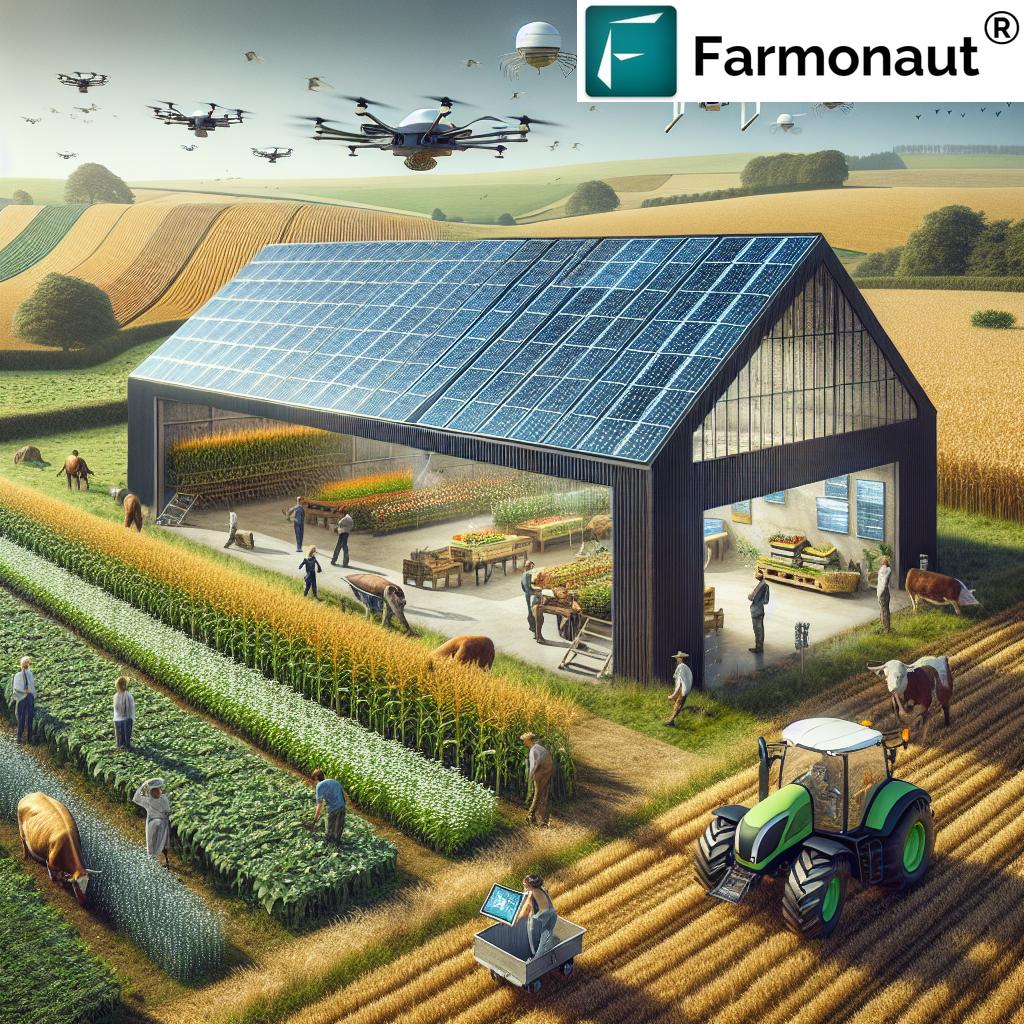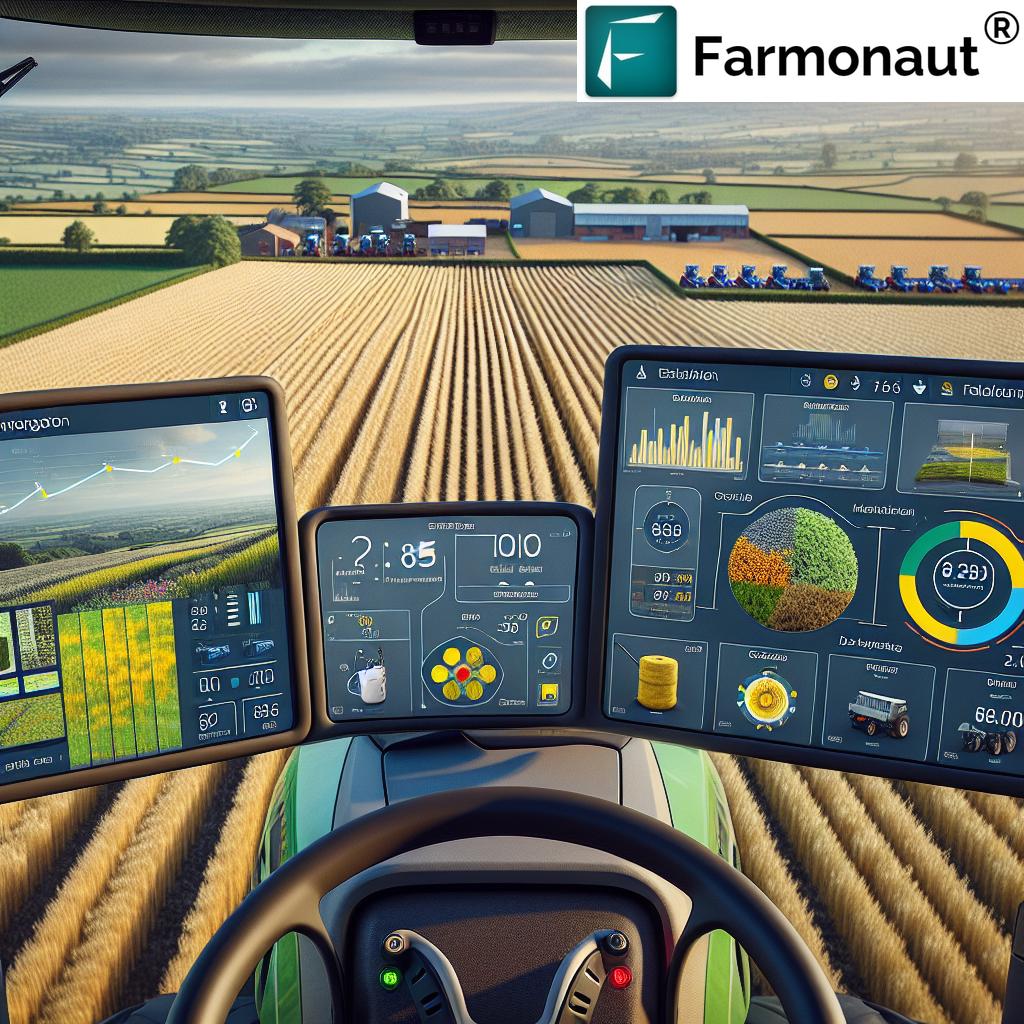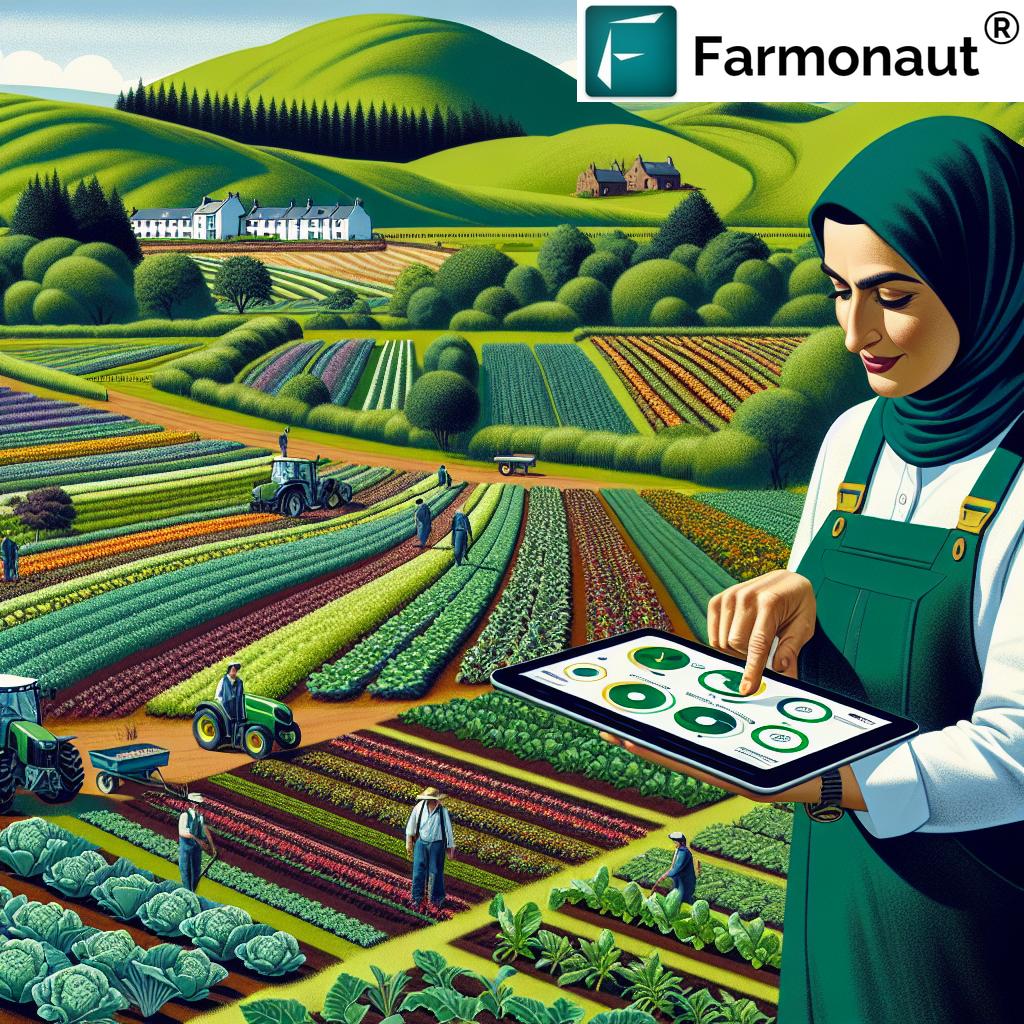UK Hemp Farming Revolution: New Licensing Rules Boost Sustainable Crop Rotations for 2025
“UK’s new hemp licensing rules extend permits from 1 year to 6 years, starting in 2025.”
As we approach 2025, the UK agricultural landscape is poised for a significant transformation, particularly in the realm of hemp farming. The new licensing rules set to take effect represent a pivotal shift in how we approach sustainable crop rotations and agricultural diversification strategies. In this comprehensive exploration, we’ll delve into the details of these changes, their implications for farmers, and the broader impact on the UK’s agricultural sector.
The Hemp Farming Revolution: A New Era for UK Agriculture
Hemp, long recognized for its versatility and environmental benefits, is finally getting the regulatory support it deserves in the UK. The upcoming changes to hemp farming regulations are set to simplify licensing processes and enhance sustainable crop rotations for farmers across the nation. This revolution in hemp cultivation is not just about a single crop; it’s about reshaping our approach to arable farming and embracing more environmentally friendly practices.
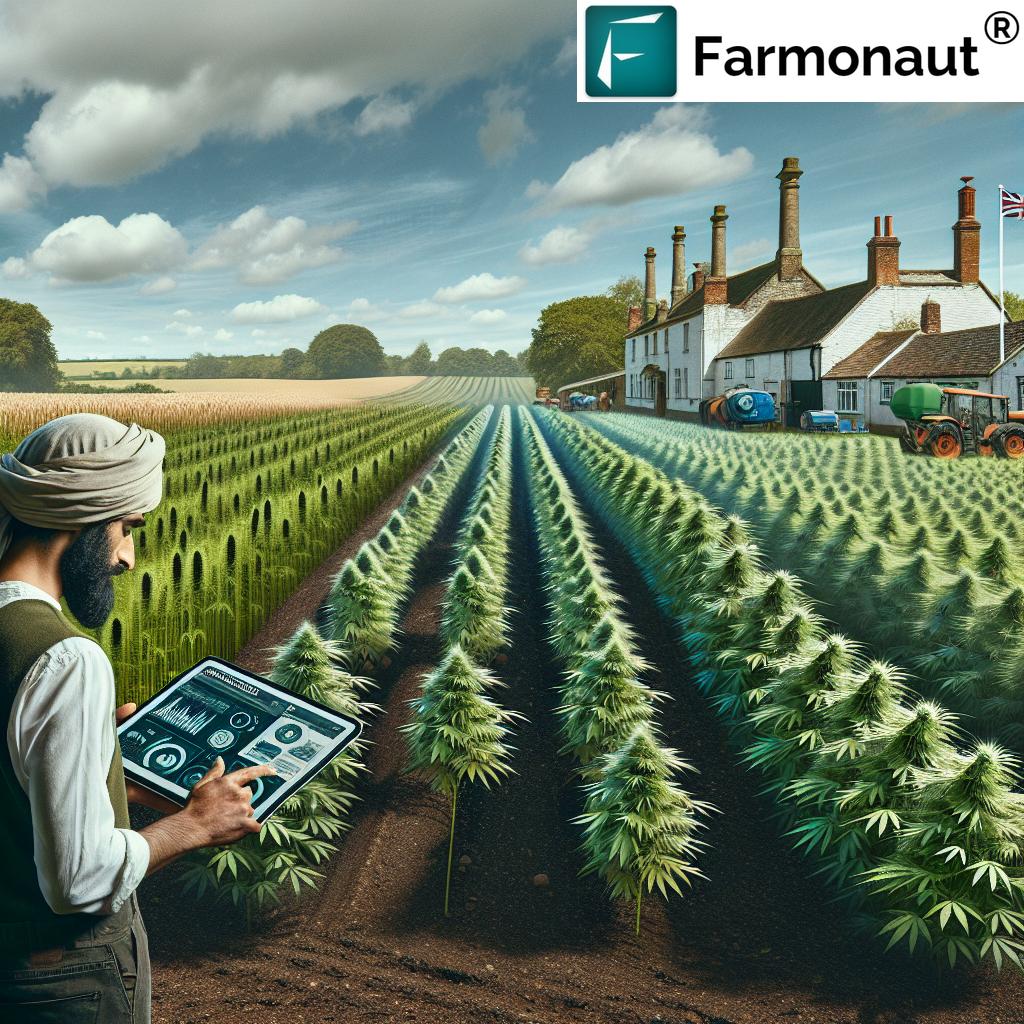
From 2025, arable farming innovations will allow cultivation anywhere on licensed farms, marking a significant departure from current restrictions. This change, coupled with extended six-year licenses, is set to promote agricultural diversification strategies and address key barriers in hemp cultivation.
Understanding the New Licensing Rules
The UK agricultural licensing reforms aim to boost local hemp production and reduce reliance on imports for various products. Let’s break down the key changes:
- Extended License Duration: Licenses will now be valid for six years, up from the current one-year term.
- Expanded Cultivation Areas: Hemp can be grown anywhere on licensed farms, removing previous location restrictions.
- Simplified Application Process: The licensing procedure will be streamlined, making it easier for farmers to enter the hemp market.
- Enhanced Crop Rotation Flexibility: Longer licenses allow for better integration of hemp into sustainable crop rotation plans.
These changes are not just bureaucratic adjustments; they represent a fundamental shift in how we view hemp as part of the UK’s agricultural strategy.
The Environmental Impact of Hemp Cultivation
Hemp is renowned for being an environmentally friendly crop that requires minimal inputs. Its cultivation offers several ecological benefits:
- Soil Regeneration: Hemp’s deep root system helps improve soil structure and prevent erosion.
- Carbon Sequestration: Hemp plants are effective at absorbing CO2 from the atmosphere.
- Reduced Pesticide Use: Hemp naturally resists pests, reducing the need for chemical interventions.
- Water Efficiency: Compared to many traditional crops, hemp requires less water to thrive.
By promoting hemp cultivation, the UK is taking a significant step towards more sustainable agricultural practices.
Market Trends and Opportunities
As market trends show growing demand for hemp, farmers can now better integrate this versatile crop into their rotations. The potential applications for hemp are vast and include:
- Textiles and Fabrics
- Construction Materials
- Food and Beverages
- Cosmetics and Personal Care Products
- Biofuels and Energy
With the new licensing rules, UK farmers are poised to tap into these expanding markets, potentially boosting their income and diversifying their crop portfolios.
Impact on Farm Business Planning
The regulatory updates offer new opportunities in farming and crop management. Here’s how these changes could impact your farm business:
- Long-term Planning: Six-year licenses allow for more strategic crop rotation planning.
- Diversification: Easier entry into hemp farming provides a new avenue for agricultural diversification.
- Risk Management: Adding hemp to crop rotations can help spread risk across different markets.
- Sustainability Goals: Hemp cultivation aligns with increasing demands for sustainable farming practices.
“Hemp cultivation in the UK will be allowed anywhere on licensed farms, up from restricted areas previously.”
Navigating the Transition: Tips for Farmers
For farmers considering hemp cultivation under the new rules, here are some key considerations:
- Education and Training: Familiarize yourself with hemp cultivation techniques and best practices.
- Market Research: Identify potential buyers and processors for your hemp crop.
- Equipment Assessment: Evaluate whether your existing machinery can be adapted for hemp cultivation.
- Soil Analysis: Conduct thorough soil tests to ensure suitability for hemp growth.
- Networking: Connect with other hemp farmers and industry experts for advice and support.
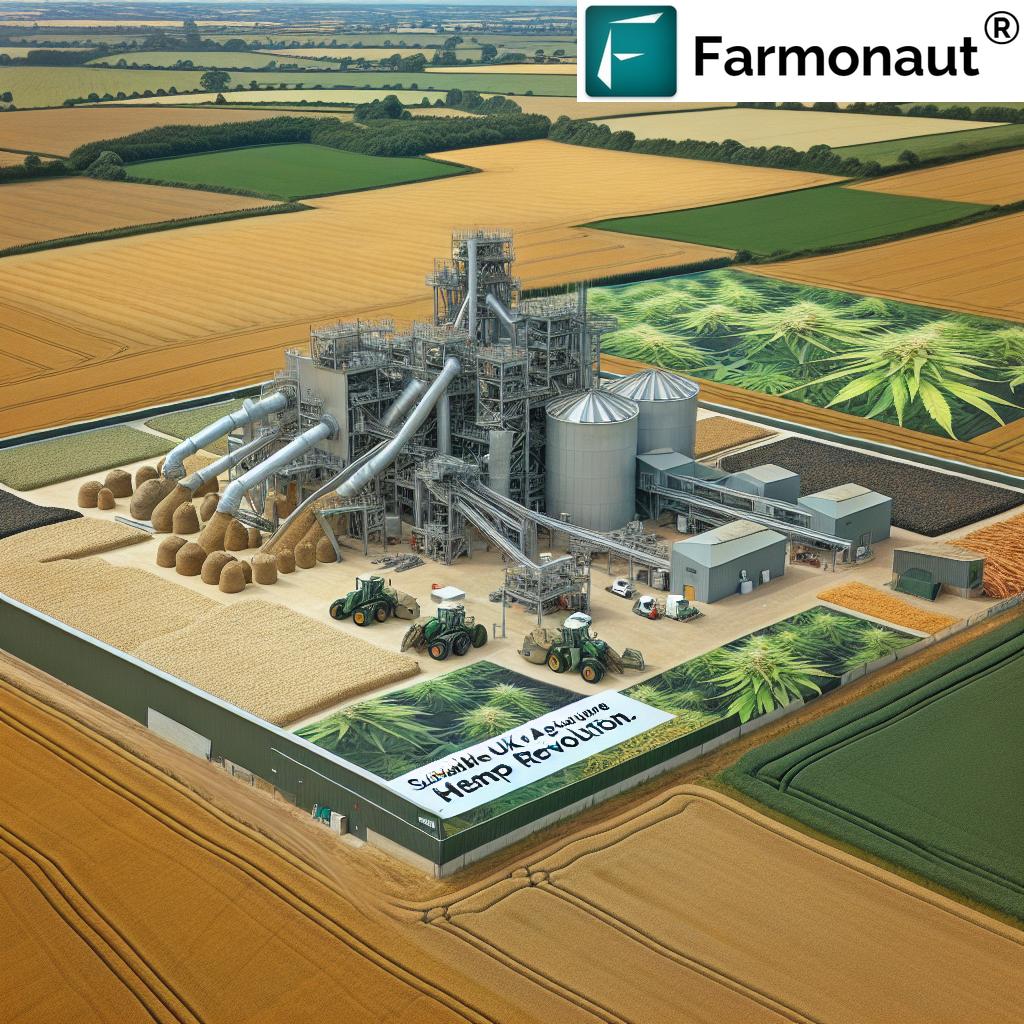
The Role of Technology in Hemp Farming
As we embrace this new era of hemp cultivation, technology will play a crucial role in maximizing efficiency and yield. Farmonaut, a leading agricultural technology company, offers advanced satellite-based farm management solutions that can be particularly beneficial for hemp farmers. Their platform provides:
- Real-time crop health monitoring
- AI-based advisory systems
- Resource management tools
These technologies can help hemp farmers make data-driven decisions, optimizing their cultivation practices and improving overall farm productivity.
Explore Farmonaut’s solutions:
Comparative Analysis: Current vs. 2025 Regulations
| Aspect | Current Regulations | 2025 Regulations |
|---|---|---|
| License Duration | 1 year | 6 years |
| Cultivation Area Restrictions | Limited to specific areas | Anywhere on licensed farms |
| Licensing Process Complexity | High | Simplified |
| Crop Rotation Flexibility | Limited | Enhanced |
| Estimated Hemp Production (tonnes) | 5,000 | 25,000 |
| Potential Market Value (£ million) | 50 | 250 |
| Environmental Impact Score (1-10) | 6 | 8 |
| Farmer Adoption Rate (%) | 5% | 20% |
This comparative analysis clearly illustrates the significant changes and potential impacts of the new hemp farming regulations set to take effect in 2025.
Challenges and Considerations
While the new regulations offer exciting opportunities, farmers should also be aware of potential challenges:
- Initial Investment: Setting up for hemp cultivation may require new equipment or modifications to existing machinery.
- Market Volatility: As with any crop, hemp prices can fluctuate based on supply and demand.
- Processing Infrastructure: The UK may need to develop more hemp processing facilities to handle increased production.
- Knowledge Gap: Many farmers will need to acquire new skills and knowledge specific to hemp cultivation.
- Regulatory Compliance: While simplified, farmers must still adhere to licensing requirements and THC content restrictions.
The Broader Impact on UK Agriculture
The introduction of these new hemp farming regulations is expected to have far-reaching effects on the UK’s agricultural sector:
- Crop Diversification: Encouraging a wider range of crops in rotation, improving overall farm resilience.
- Rural Economy Boost: Potential for new jobs in hemp cultivation, processing, and related industries.
- Innovation Stimulus: Likely to spur research and development in hemp-based products and technologies.
- Sustainable Agriculture: Aligning UK farming practices with global sustainability goals.
- Reduced Imports: Increasing domestic hemp production could decrease reliance on imported hemp products.
These changes signal a proactive approach to evolving agricultural landscapes, offering new opportunities in farming and crop management.
Integrating Hemp into Existing Farm Operations
For farmers considering adding hemp to their crop rotations, here are some practical steps:
- Assess Your Land: Identify suitable areas on your farm for hemp cultivation.
- Plan Your Rotation: Determine how hemp will fit into your existing crop rotation schedule.
- Water Management: While hemp is water-efficient, ensure you have adequate irrigation if needed.
- Harvest Planning: Consider the timing of hemp harvest in relation to your other crops.
- Storage Solutions: Plan for appropriate storage facilities for harvested hemp.
For detailed insights on crop monitoring and management, check out Farmonaut’s API and API Developer Docs.
The Future of Hemp in UK Agriculture
As we look towards 2025 and beyond, the future of hemp in UK agriculture appears bright. The new regulations are likely to spark:
- Increased Research: More studies on hemp varieties suited to UK climates and soils.
- Product Innovation: Development of new hemp-based products across various industries.
- Sustainable Practices: Hemp cultivation as a model for environmentally friendly farming.
- Economic Growth: Expansion of the UK’s hemp industry, creating new economic opportunities.
Preparing for the Hemp Farming Revolution
As we approach 2025, farmers and agricultural businesses should start preparing for this new era in UK hemp farming. Here are some key steps:
- Stay Informed: Keep up-to-date with the latest developments in hemp regulations and cultivation techniques.
- Network: Connect with other farmers and industry experts to share knowledge and experiences.
- Explore Markets: Research potential markets for hemp products and establish connections with processors and buyers.
- Invest in Technology: Consider adopting farm management technologies to optimize hemp cultivation.
- Plan Financially: Assess the financial implications of incorporating hemp into your farm business.
Conclusion: Embracing the Hemp Opportunity
The UK’s new hemp farming regulations for 2025 represent a significant opportunity for farmers to diversify their crops, enhance sustainability, and tap into growing markets. While challenges exist, the potential benefits of hemp cultivation – from environmental improvements to economic gains – make it an attractive option for many UK farmers.
As we move towards this new era in agriculture, staying informed, prepared, and open to innovation will be key. The hemp farming revolution is not just about a new crop; it’s about reimagining the future of UK agriculture in a more sustainable, diverse, and profitable way.
FAQ Section
Q: What are the main changes in UK hemp farming regulations for 2025?
A: The key changes include extending licenses from 1 to 6 years, allowing cultivation anywhere on licensed farms, and simplifying the licensing process.
Q: How will these changes benefit farmers?
A: Farmers will have more flexibility in crop rotation, reduced administrative burden, and increased opportunities for sustainable farming practices.
Q: Is hemp cultivation environmentally friendly?
A: Yes, hemp is known for its low environmental impact, requiring minimal pesticides and improving soil health.
Q: What are the potential markets for hemp?
A: Hemp has diverse applications including textiles, construction materials, food products, cosmetics, and biofuels.
Q: Do I need special equipment to grow hemp?
A: While some existing farm equipment can be used, you may need to invest in specific harvesting and processing equipment depending on your intended hemp use.






